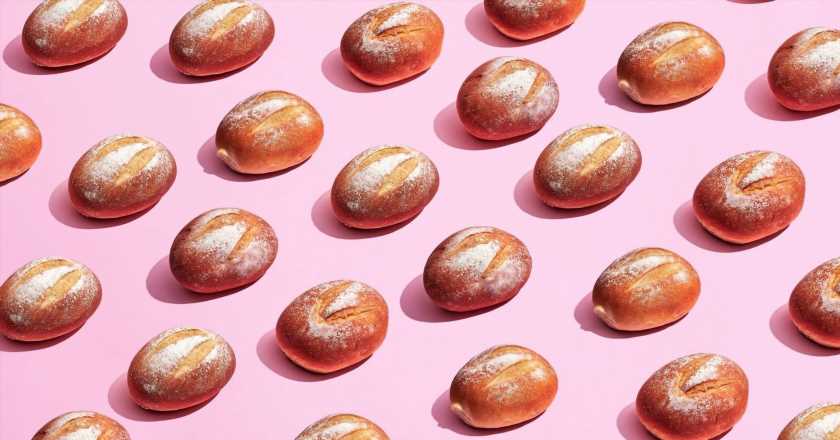
Iron is vital for active women, but most of us are fuzzy on how much we need, what foods are iron-rich and how to make the most of an iron-rich diet. Luckily, the answers are simpler than you’d think, says writer Ellie Broughton.
The cost of living crisis is here, and it’s coming for your grocery bill. Friday night steaks? Organic kale? Outlandishly expensive granola? Lots of those little luxuries are going back on the shelves because your budget can no longer stretch to them.
But in our pre-menopausal years, anyone with a period needs about 15mg a day of iron – which is quite a lot to come by in just 24 hours. So, how can we get enough to boost our energy levels and support a healthy menstrual cycle and blood supply?
You may also like
Is anaemia affecting your workout? How to exercise with an iron deficiency
First things first: there are two types of iron: heme and non-heme. Heme iron comes from meat and fish, and it’s easier to absorb compared with non-heme.
Non-heme iron comes from vegetarian and vegan sources. It’s harder to absorb, but according to Jo Travers, a leading nutritionist, you can get enough iron from it without taking a supplement. The trick is to eat widely and to know a few good sources of iron that work with your diet.
Good iron sources for veggies and vegans
Beans, lentils and chickpeas are packed with iron. “They are a natural substitute for meat in the diet because they contain protein,” she says, “and they contain zinc and other nutrients you’d also get from meat.” That covers a massive range of food including edamame beans, butter bean mash, hummus, dhal and chilli.
Kale, chard and spring greens are all iron-rich too and Travers also nods to fortified cereal – and, surprisingly, white bread. While it’s true that brown bread has a lot going for it (more vitamins and minerals, more fibre, more flavour), it won’t up your iron levels like fortified white bread. That’s because some of the ‘extras’ in brown bread stop you from absorbing the iron. All non-wholemeal bread in the UK, on the other hand, is fortified with iron and other nutrients.
Next time you’re thinking of buying a loaf, check the ingredients. If it’s got iron in it, the packet should list the mineral as part of the flour.
For an easy win, Travers goes for a few dried apricots. “For many women, eating three dried apricots would be enough to top up that iron,” she explains. Thirty grams of dried apricots (about three or four of them) contains 1mg iron – and dried figs and raisins deliver roughly the same amount.
Don’t skip the freezer section
If you’re trying to eat an iron-rich diet on a budget, Travers recommends stocking your freezer. Nutrients, including iron, are well-preserved in frozen food. They may even outperform nutrients in fresh or tinned food – particularly when it comes to vitamin C, which gets heavily depleted during heat processing that tinned food goes through.
“Frozen is better, often because it gets packed, cooked and packed almost straight away,” she says. “When you have fruit and veg that’s been sitting on the shelf or in storage, some of the nutrients ebb away.
“Frozen fruit and veg is also very cost-effective: it doesn’t go bad and there’s much less wastage.”
You may also like
Nutrition tips: avoid coffee at breakfast and other tips for making your diet super nutritious
Should you take an iron supplement with orange juice
Kitchen table wisdom about taking supplements with orange juice is spot on – and the science behind it is important for veggies and vegans. Vitamin C (ascorbic acid) makes iron easier to absorb.
“Lots of food combinations already contain vitamin C and iron,” Travers explains. “In baked beans, for example, there’s vitamin C in the tomato sauce, and in a chickpea salad you can add a squeeze of lemon juice to the olive oil.”
On the flipside, calcium inhibits iron intake, as do the tannins in tea and coffee. Whether you’re eating an iron-rich diet or popping a supplement, try to schedule your latte a few hours before or after so your body can make the most of your iron.
The lowdown on iron and vitamin B12
For strict vegans, throwing in a B12 supplement may ease concerns about a rare type of iron deficiency known as pernicious anaemia.
“Not having enough B12 means the body cannot make enough red blood cells, which leads to not enough iron in the body,” Priya Tew, director of Dietitian UK, explains. “Vitamin B12 is found in animal products, so if you are vegan or vegetarian then you may need a supplement or injection of B12.”
But she adds, if you eat vegan sources of B12 (Marmite, fortified plant milk or cereal, nutritional yeast, nori or tempeh) you shouldn’t worry about B12 deficiency.
For more nutrition tips, visit the Strong Women Training Club.
Images: Getty
Source: Read Full Article